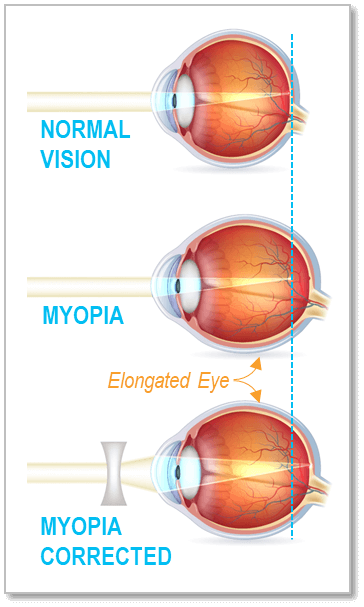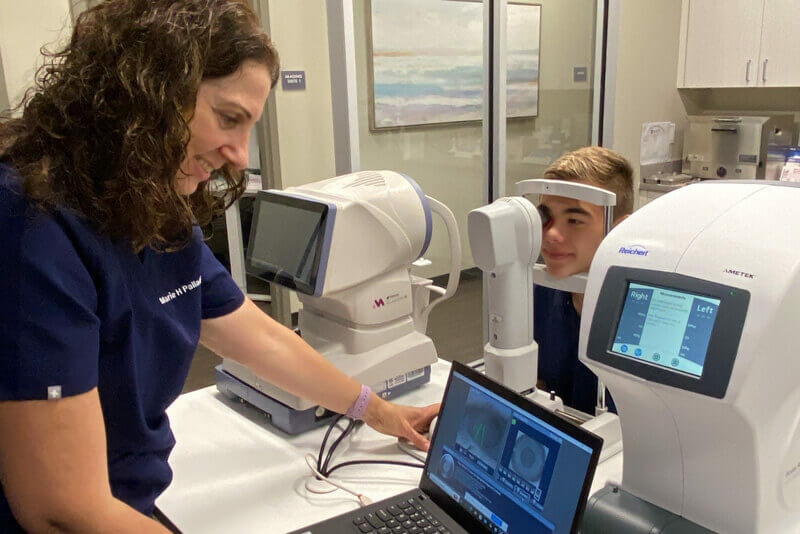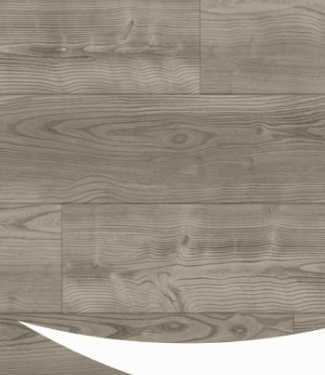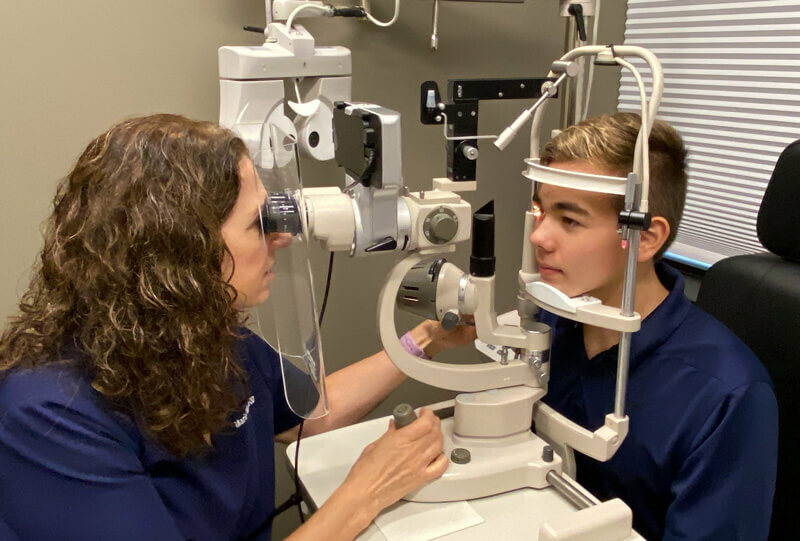Myopia Management
What Is Myopia — and How Does it Affect Long-Term Health and Quality of Life?
Myopia, commonly known as nearsightedness, is a condition where objects appear clear up close, but are blurry or fuzzy at a distance. Myopia is already a common condition, but the rate of people developing myopia is increasing, and the condition can have a negative impact on both quality of life and long-term eye health. Myopia changes eyes permanently by elongating the eye (like a football) , which in turn creates refractive errors. Your child’s eyes should be round, not football shaped. While glasses can correct vision issues caused by myopia, don’t prevent the structural changes caused by myopia or its progression.
Patients with myopia are also at an increased risk for health issues later in life, with myopic children being especially at risk — but there are ways to prevent the progression of myopia using a range of non-invasive, non-surgical myopia management methods. Our goal is to preserve the structure of the eye – keep it round! We’ve designed our MOA Myopia Management Center of Excellence around the needs of patients of all ages, with personalized treatment plans to slow or halt myopia’s progression!

Get the Facts About Myopia
Three groups of children who are at high risk for developing myopia.
- Children who devlop myopia before the age of 10.
- Children experiencing frequent changes in their glasses prescription.
- Children with myopic parents or siblings, particularly those of Asian descent.
The rate of myopia is reaching epidemic proportions:
- It’s estimated that nearly half of the world’s population will have some degree of myopia by the year 2050 (increasing from 27% in 2010)
Children with myopia are at an increased risk of eye diseases:
- They’re 50% more likely to develop glaucoma
- They’re six times more likely to have issues with retinal detachment
- They’re three times more likely to develop cataracts
Screen time with digital devices increases the risk of myopia progression:
- This is especially a concern with the increased use of mobile devices, and more use of virtual learning
- During the COVID-19 pandemic, myopia prevalence was three times higher



Meet Our National Recognized Myopia Management Expert: Dr. Marie Homa-Palladino
A nationally recognized leader in myopia management, Marie Homa-Palladino, OD, FIAOMC, IACMM , is the director of the MOA Myopia Management Center of Excellence and the only provider in the southeastern Pennsylvania region who has achieved the honor of becoming a fellow in the International Academy of Orthokeratology and Myopia Control. She has dedicated her practice exclusively to the specialty of Myopia Management.
Dr. Homa-Palladino has more than a decade of experience in myopia management and is particularly passionate about helping younger patients overcome myopia and its challenges and advancing the field of myopia management. In addition to her work at Medical Optometry America and the MOA Myopia Management Center of Excellence, she lectures frequently at national meetings and sits on the American Academy of Orthokeratology and Myopia Control’s board of directors.
What you should look for in selecting a myopia management provider:
- Doctor with years of myopia management experience and myopia-specific specialized training.
- Doctor who offers the full range of therapy options including Ortho-K, specialty contact lenses, and prescription drops.
- A center that is equipped with the specialized diagnostic equipment needed to optimally manage myopia and enable customized solutions.
Myopia Management Treatment Options at the MOA Myopia Management Center of Excellence
We employ a wide range of strategies and services to keep myopia from progressing and affecting your eye health, including the following:
Prescription Eye Drops
Our team has had success slowing and controlling myopia using specialized prescription eye drops, including atropine drops. These eye drops are easy to use, and often work well in tandem with other treatment methods.
Specialty Soft Lenses
We also offer specialty soft contact lenses that can help correct myopia and vision at the same time. We’ve seen daily wear of these lenses reduce myopia’s progression by 40%.
Orthokeratology & Corneal Retainers
Overnight wear of these specially designed gas permeable lenses can reduce myopic progression by 45%. And since these lenses temporarily improve your child’s vision, they won’t need to wear glasses or contact lenses during the day!
Is Your Child at Risk? Find out Today!
Is your child struggling to see things at a distance? Take our 30-second quiz to determine if your child is at risk for myopia or nearsightedness. This simple assessment provides a quick and insightful glimpse into your child’s risk of myopia. Don’t let myopia or nearsightedness hold your child back- take action now to preserve their visual health for a lifetime of success and clear sight!


Take Control of Your Child’s Eye Health and Vision at the MOA Myopia Management Center of Excellence
Our facility has been designed to provide patients and their children with the best possible myopia management treatment options with personalized treatment plans that will address each patient’s own unique vision needs. Myopia management from Dr. Homa-Palladino and our team can improve you or your child’s quality of life, while protecting their eyes from a lifetime of issues and conditions. Schedule an evaluation today and learn more about how the MOA Myopia Management Center of Excellence can keep the eye health of you and your child in focus with our myopia management plans.
